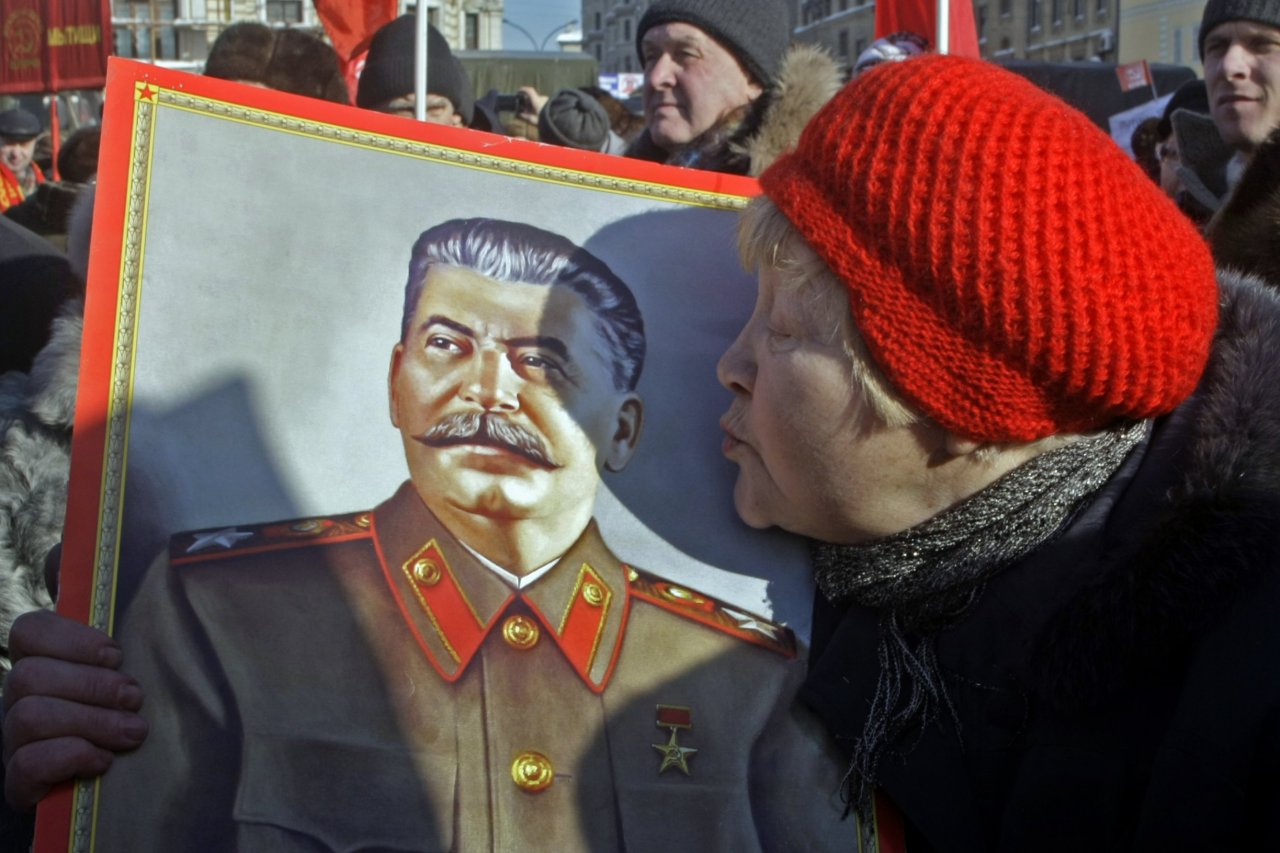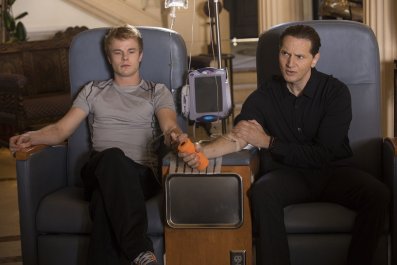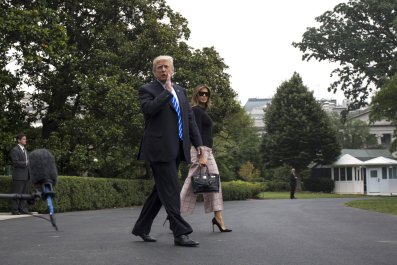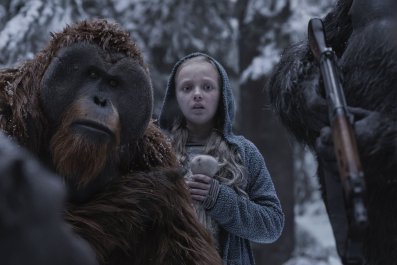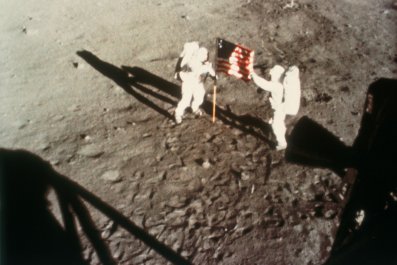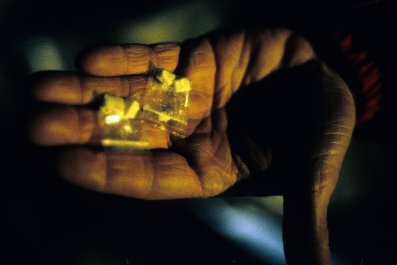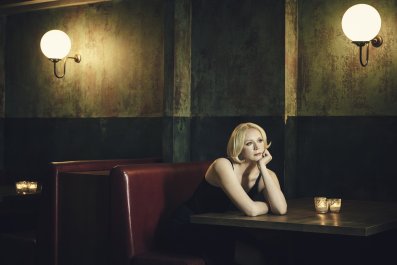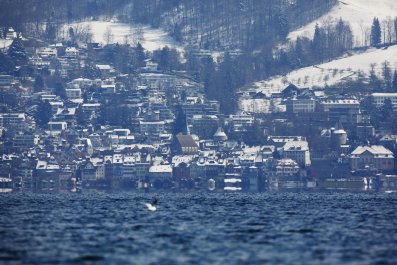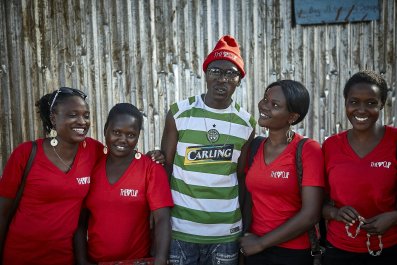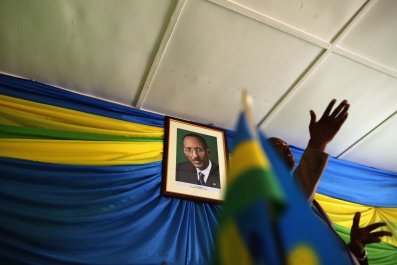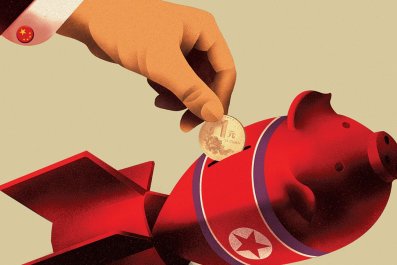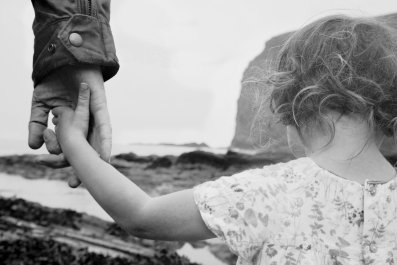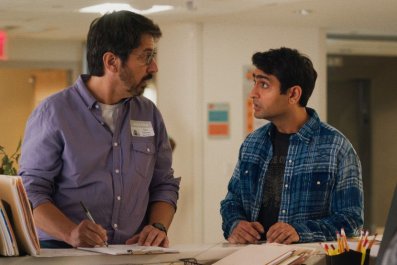In the Soviet Union of my youth, Josef Stalin was invisible. His predecessor in the Kremlin, Vladimir Lenin, was everywhere, from the pins on our school uniforms to the statues or busts that seemed to adorn every public space. In those statues, his arm was always raised, palm outstretched, exhorting us toward the glorious socialist future. My native city had decided that Lenin superseded Peter the Apostle in world-historical import, so St. Petersburg became Leningrad. Stalin once had his own city—Stalingrad, the site of a ferocious World War II battle—but after the mustachioed despot's myriad sins were exposed, the city reverted to Volgograd in 1961.
Stalin's fall from grace was the doing of Nikita Khrushchev, the Soviet leader who'd denounced him in a secret 1956 speech, railing against Stalin's "glaring violations of revolutionary legality" and, more ominously, his practice of "physical annihilation," perhaps a reference to the people killed in his purges and terrors, as many as 30 million.
Activist and journalist Masha Gessen, who grew up in Moscow during the 1970s, says, "I learned absolutely nothing in school [about Stalin]. Nothing. It's like he didn't exist. The whole Stalin era had just disappeared."
And now it's back. Earlier this summer, Khrushchev's great-granddaughter, Nina Khrushcheva, took a trip to the city of Samara, in southern Russia. There, on the banks of the Volga River, sits the bunker constructed for Stalin in 1942, when it looked as if the Soviet Union could fall to the Wehrmacht's eastward advance. The bunker's existence was not revealed until 1991; today, it is a prime example of Soviet kitsch, in all its terrifying glory. "Loved the red strobe lights/alarms that went off to recreate the feeling of an emergency as you go into the bunker," wrote one user on TripAdvisor.
Khrushcheva was struck by another aspect of the bunker museum: its shockingly sunny attitude toward the man for whom it was built. Speaking from Moscow, Khrushcheva, who teaches at the New School for Social Research in Manhattan, says, the hero-mongering of the mass murderer was "staggering."
"Even to me," she added.
It has been surprising to all of us who grew up in the Soviet Union, as surprising to many Americans as the election of Donald Trump. If the latter says something troubling about America to critics, the former says something far more troubling about Russia, whose tendency toward authoritarianism runs much deeper. For all his silly tweets, Trump hasn't opened any gulags (yet).
The worship of Stalin extends well beyond that bunker in Samara. In the Russia of Vladimir Putin, Stalin has enjoyed an unlikely—and to many, an unseemly—resurgence. His sins have been forgotten, while his greatness, in particular as commander in chief during World War II, has been vastly exaggerated. That's largely because his rehabilitation has been a pet project of Putin, who critics say has disturbingly Stalinist tendencies.
In a sign of how inextricably the fortunes of the two strongmen are linked, a new poll by the Levada Center—an independent organization providing reliable data—that surveyed 1,600 Russians found they consider Stalin the most significant figure in the history of the world. Putin is second, in a tie with poet—and fellow St. Petersburg native—Aleksandr Pushkin. Earlier this year, another Levada Center poll found approval for Stalin at 46 percent, the highest it had been in 16 years, roughly since Putin came to power. Although those findings weren't surprising, they were especially troubling this year, as Russia grows increasingly hostile to the West, and nuclear war is no longer the mere stuff of Hollywood hacks. Moreover, Trump's open admiration of Putin seems to be fueled by the very qualities Putin admires in Stalin: strength, ruthlessness, nationalism, militarism.
Stalin's recrudescence would have been impossible without Putin, whose "managed democracy" has turned out to be what Gessen calls a "retro-totalitarian" regime that recalls Stalin without his bloodiest excesses. She argues that Putin "reproduced a totalitarian society with only disparate elements of state terror—enough to remind people what's possible, enough to make the habits of a totalitarian society kick in."
Khrushcheva points to the installation, in 2009, of Stalinist slogans in the busy Kurskaya station in central Moscow, and there have been plenty of other small gestures. In 2013, Bloomberg reported that new guidelines for secondary-school history textbooks "attempt to paint a 'balanced' picture of Stalin's rule. They describe Stalin as a modernizer who brought about Russia's ultra-fast industrialization, laid the foundation for the Soviet Union's scientific achievements and its victory in World War II," though they also acknowledge his "mass purges" and reliance on "forced labor."
Last month, Kutafin Moscow State Law University said it was restoring a plaque honoring Stalin that had been taken down sometime after Khrushchev's 1956 denunciation. One professor, Henry Reznik, resigned in protest, calling Stalin a "gravedigger of the law."
This red-washing of history is made easier by the deaths of Russians old enough to remember the purges and show trials of the 1930s. The lack of an independent media further hampers attempts to keep the Kremlin from creating fictional versions of the past and passing them off as truth.
Gary Saul Morson, a scholar of Russia at Northwestern University, told me that Americans don't understand the enormous importance Russians put on national pride. "Russia matters to them in an almost mystical sense," he says. "Individuals live and die, but Russia continues." The democracy ineptly nurtured during the 1990s by Boris Yeltsin was a chaotic rupture in the teleology of national greatness, one that made many long for the Soviet Union. Putin signaled the welcome return of Mother Russia.
The Russian flirtation with democracy lasted less than a decade. Given Putin's relative youth, a second date may not be coming for a while. And so I asked Morson the question that haunts me after every Putin crackdown on gays, liberals and foreigners, as the dreams of a democratic Russia seem ever more distant.
"Is Russia capable of democracy?"
Morson paused, then said, "I don't know how to answer that."
Russians may be as capable of democracy as any other country, but cowed by nearly two decades of low-grade despotism and lulled by a false sense of economic resurgence, they are trusting yet again in the Kremlin's strength, forgetting the inconvenient but inescapable lessons of history.



